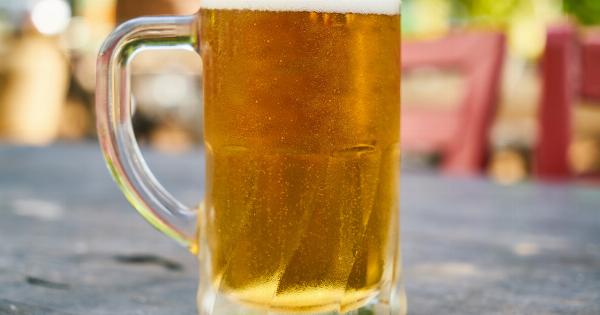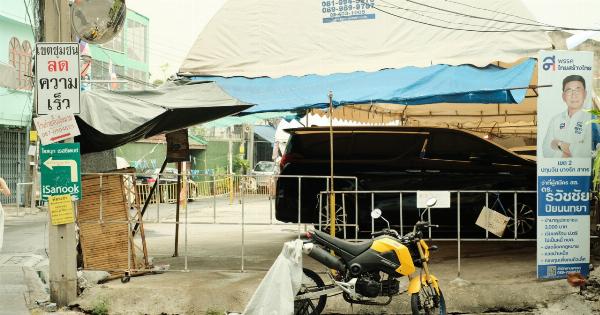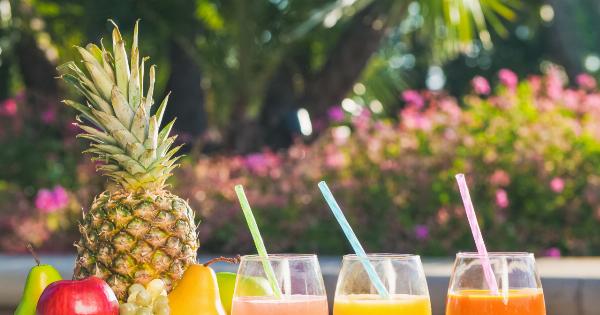Going on an adventure can be an exciting and fulfilling experience. However, it can also be a source of stomach issues, especially constipation.
The change of routine, different foods, and unfamiliar surroundings can disrupt the digestive system’s normal functioning, leading to constipation, bloating, and other gastrointestinal discomforts.
H2: What is constipation?.
Constipation is defined as having infrequent bowel movements or difficulty passing stools. It can be caused by various factors, including inadequate fiber intake, dehydration, lack of physical movement, stress, and certain medications.
People with constipation often have hard, dry, and lumpy stools that are challenging and painful to pass. In severe cases, it can lead to fecal impaction and other complications.
H2: Why does constipation occur during adventures?.
When you go on an adventure, you expose your body to new environments, foods, and routines that can disrupt your digestive system’s natural balance. Some of the common reasons why constipation occurs during adventures include:.
- Change in diet: Eating unfamiliar foods, skipping meals, or not drinking enough water can lead to constipation.
- Inactivity: Long hours of sitting during travel or less physical movement during adventures can slow down bowel movements.
- Stress: Adventures can be stressful, leading to anxiety, which can cause constipation.
- Changes in routine: Your body gets used to a particular routine of waking, sleeping, and eating. Therefore, any changes to the usual routine can disrupt bowel movements.
- Weather changes: Humidity, temperature, and altitude changes can also cause constipation.
H2: How to prevent constipation during adventures?.
Constipation can be frustrating, uncomfortable, and painful. However, you can prevent it by following these tips:.
- Stay hydrated: Drink plenty of water and other fluids to keep yourself hydrated. Dehydration can cause constipation and other digestive issues.
- Include fiber in your diet: Eat foods rich in fiber, such as fruits, vegetables, whole grains, and legumes to promote bowel movements.
- Practice physical activity: Regular exercise and stretches can help stimulate bowel movements and prevent constipation.
- Stick to your routine: Try to maintain your usual routine as much as possible to help your body adjust and avoid constipation.
- Relax: Practice stress-relieving techniques such as meditation, deep breathing, or yoga to reduce anxiety and prevent constipation.
- Carry medications: If you are prone to constipation, carry laxatives or stool softeners with you. However, always consult with a doctor before using any medication.
H2: What to do if you are already constipated?.
Despite the preventive measures, you might still get constipated during adventures. Here are some tips to relieve constipation:.
- Drink plenty of fluids: Water, tea, and other fluids can help soften the stool and promote bowel movements.
- Eat fiber-rich foods: Include fruits, vegetables, whole grains, and legumes in your diet to help move stool through the digestive system.
- Use laxatives or stool softeners: In the case of severe constipation, you can use over-the-counter laxatives or stool softeners to relieve the symptoms.
- Practice bowel movement habits: Try to sit on the toilet at the same time every day, relax, and have patience to encourage regular bowel movements.
- Consult with a doctor: If the constipation persists, consult with a doctor to rule out any underlying medical condition or get proper medical advice.
H2: Conclusion.
Constipation can be a common problem during adventures. However, it can be prevented and treated by following simple tips such as staying hydrated, eating a high fiber diet, practicing physical activity, and regular bowel movement habits.
In case of severe symptoms, consult with a doctor to rule out any underlying medical condition.































